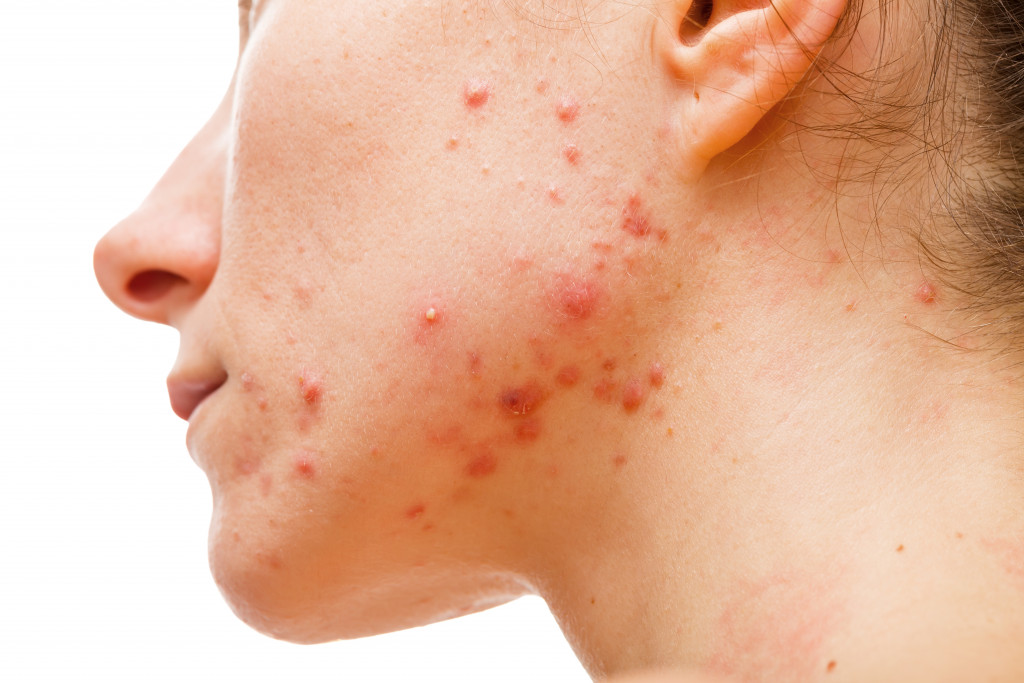- Acne breakouts, resulting from clogged hair follicles, are common in women due to multiple factors.
- Hormonal changes, genetics, certain skincare products, stress, and diet contribute to women’s acne breakouts.
- Using non-comedogenic makeup, following a proper skincare routine, and managing stress can help manage acne.
- Severe acne may require medications like oral antibiotics, topical creams with retinoids, and benzoyl peroxide.
- A low-glycemic diet, hydration, understanding individual skin needs, and professional advice can help combat acne.
Acne breakouts can be a nightmare for many women. They are not only unsightly but can also significantly impact their self-esteem. Unfortunately, acne is not an ailment reserved for teenagers but is also prevalent among adult women. Although acne is not a severe medical condition, it can significantly affect a woman’s psychological well-being. Here’s a deeper look into why acne breakouts are common among women and suggest practical ways to combat them.
What Are Acne Breakouts?
Acne breakouts are a skin condition that occurs when hair follicles are filled with oil and some dead skin cells. This results in the appearance of pimples, blackheads, whiteheads, and other types of lesions on the face, chest, back, and shoulders. Acne is most commonly associated with puberty when hormonal changes cause an increase in oil production in the skin. However, many women struggle with acne well into their 20s, 30s, and 40s.
Why Do Women Experience Acne Breakouts?
Several factors can contribute to a woman’s likelihood of experiencing acne breakouts. Here are some of them:

1. Hormonal Changes
One of the leading causes of acne breakouts among women is hormonal fluctuations. This is why women tend to experience breakouts during their menstruation and pregnancy. Progesterone, a hormone that increases during menstruation or pregnancy, stimulates oil production, leading to clogged pores, which eventually cause pimples. Furthermore, oral and non-oral contraceptives have been known to cause hormonal imbalances, leading to acne breakouts.
2. Genetics
Another prevalent cause of acne is genetics. If your Mom had acne as an adult, you will likely suffer from it too. Genetics does play a significant role in determining who gets acne and who doesn’t. Specific triggers usually trigger acne-prone skin. These include specific foods, hormones, and stress.
3. Skincare Products
A commonly overlooked cause of acne breakouts among women is skincare products that clog pores. Many women are unaware they may use beauty regimes that hinder their skin from breathing. Some culprits in skin irritation and acne breakouts include foundations and poorly formulated sunscreens that don’t wash off easily.
4. Stress
It’s no secret that stress is bad for your health. Stress can produce a range of symptoms, including anxiety, depression, and acne. The psychological stress you experience in your daily life stimulates the production of androgen hormones in your body, which can result in oiliness and clogged pores on your skin.
5. Diet
A high glycemic index diet is linked to acne breakouts. This is because high glycemic index food stimulates insulin production in your body, leading to hormonal imbalances, inflammation, and acne. Additionally, sugar, dairy, and spicy foods may trigger acne breakouts in some women.
Ways to Deal With Acne
Thankfully, there are various ways you can deal with acne. Here are five of the most common ways.
1. Makeup For Acne
First, it’s essential to use the right makeup for your acne. You’ll need to look up the best makeup for acne online. Ensure that the makeup has no ingredients that will further irritate your skin. Also, always remember to remove all makeup before going to bed.

2. Skincare Routine
A skincare routine is essential for keeping acne at bay. Ensure you use products that suit your skin type and avoid harsh chemicals and fragrances. You must also cleanse, tone, and moisturize your face daily.
3. Medications
In severe cases, it may be necessary to use medication to treat acne. Your dermatologist may prescribe oral antibiotics or topical creams that contain retinoids and benzoyl peroxide, which help unclog pores and reduce inflammation.
4. Healthy Diet
Maintaining a healthy diet can also help prevent acne breakouts. Avoid high glycemic foods and consume plenty of fruits, vegetables, and whole grains. Additionally, drink lots of water to flush out toxins from your body.
5. Manage Stress
Finding healthy ways to manage stress can also help prevent acne breakouts. Try incorporating relaxation techniques such as yoga, meditation, or exercise into your daily routine.
Acne breakouts are a common concern among women of all ages, primarily due to hormonal changes, genetics, certain skincare products, stress, and diet. However, it’s possible to combat these unwelcome breakouts by adopting a thoughtful skincare routine, choosing makeup carefully, taking prescribed medications, maintaining a healthy diet, and managing stress effectively. Everyone’s skin is different, and what works for one might not work for another. Therefore, it’s essential to understand your skin type and needs and seek professional advice when necessary.

